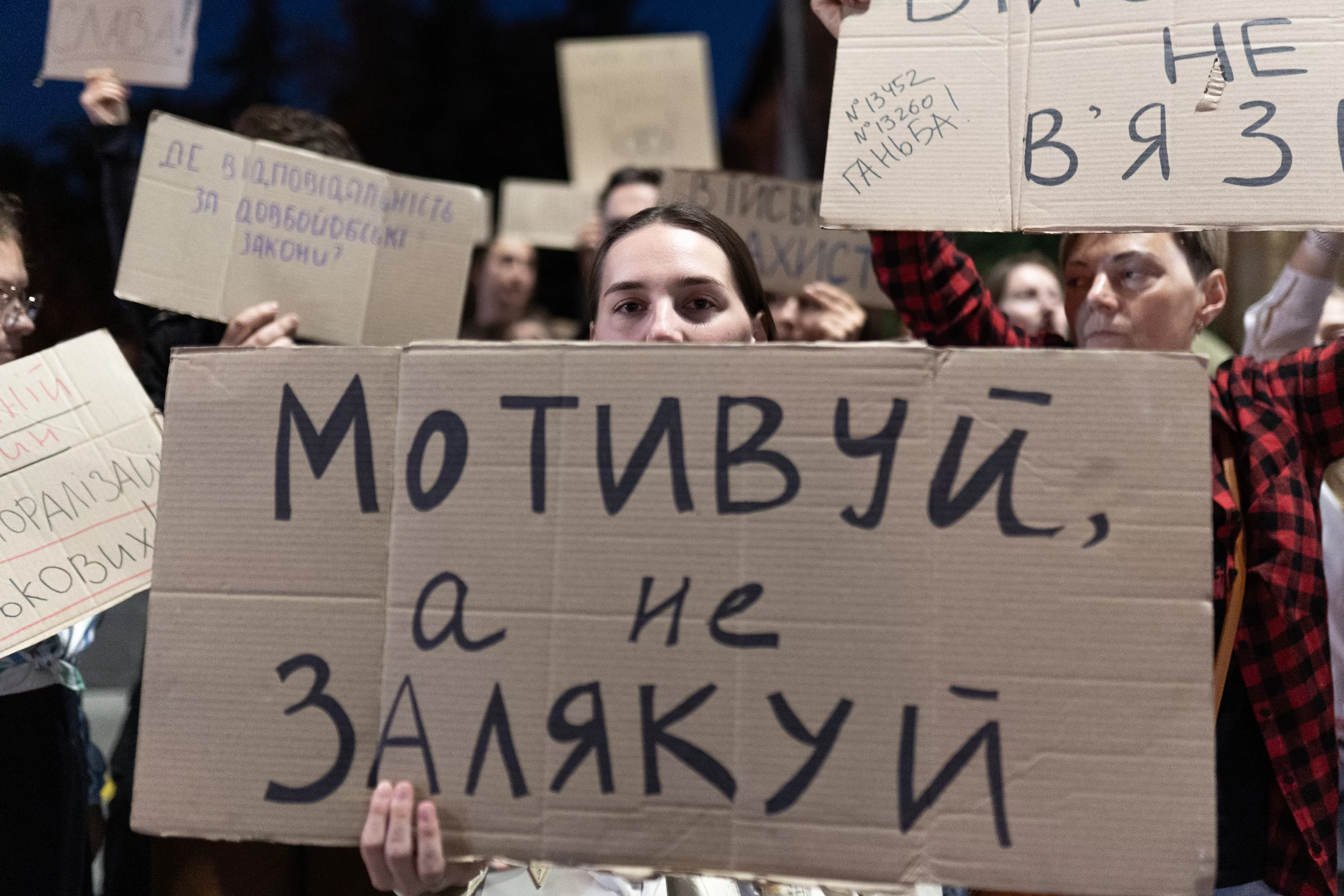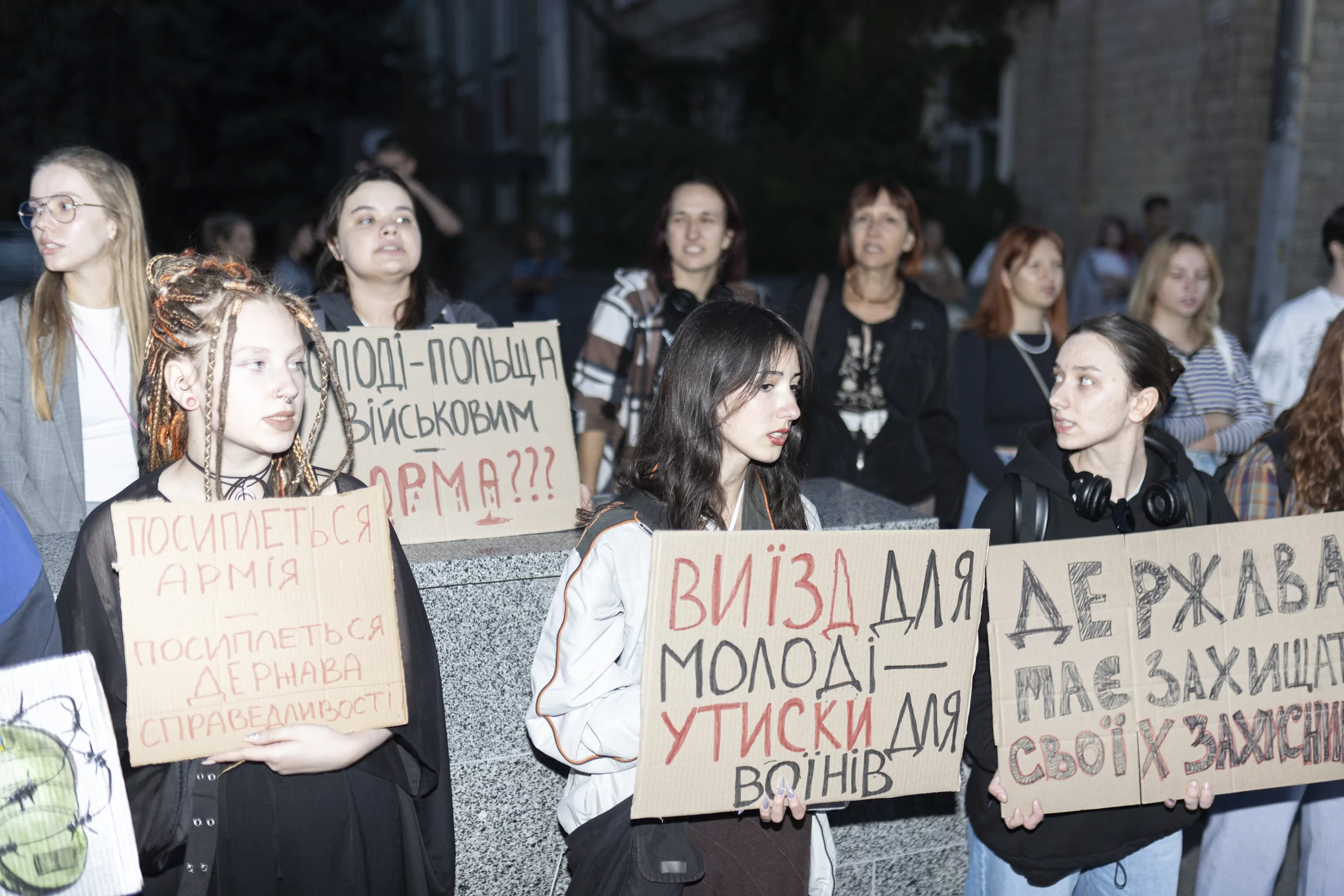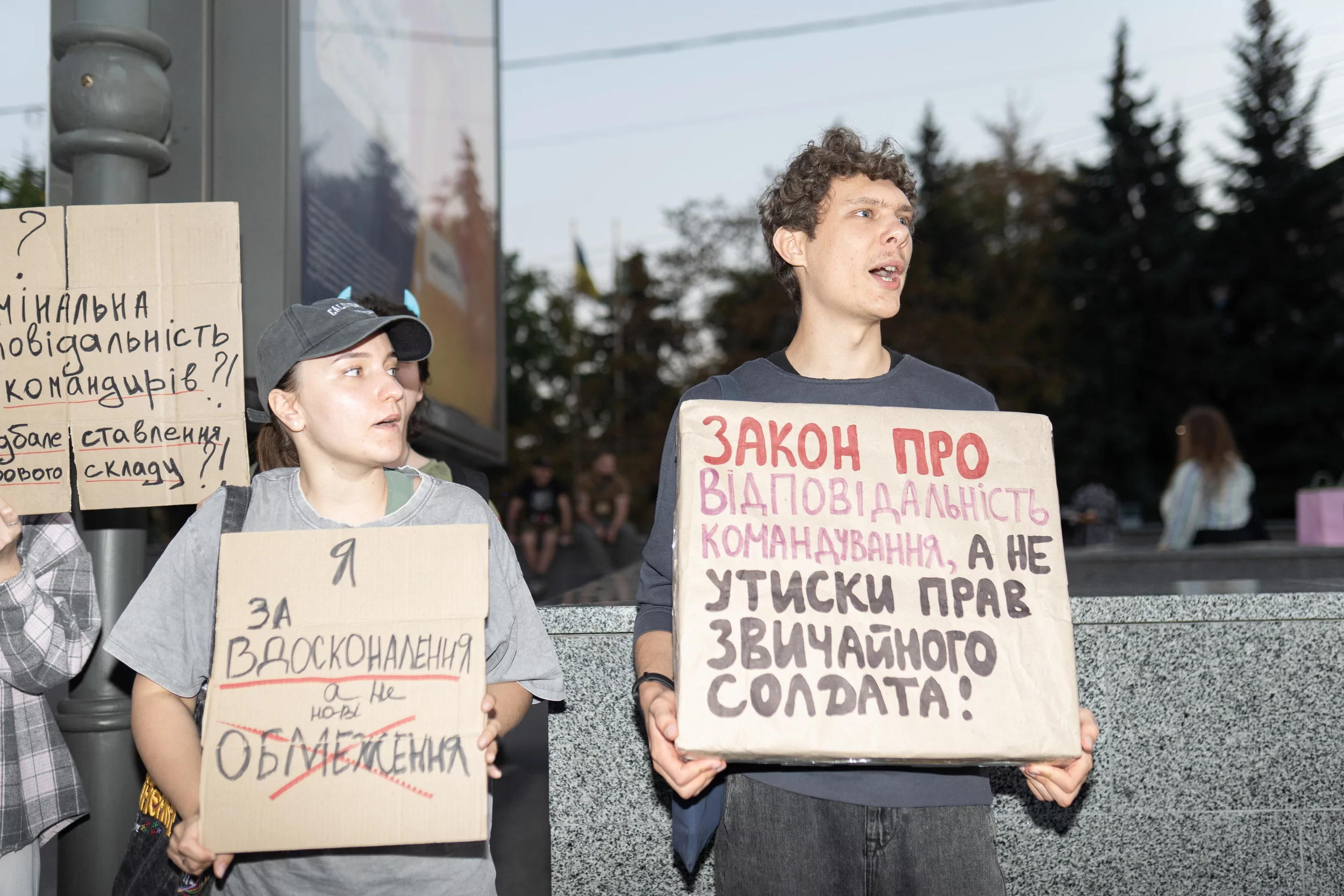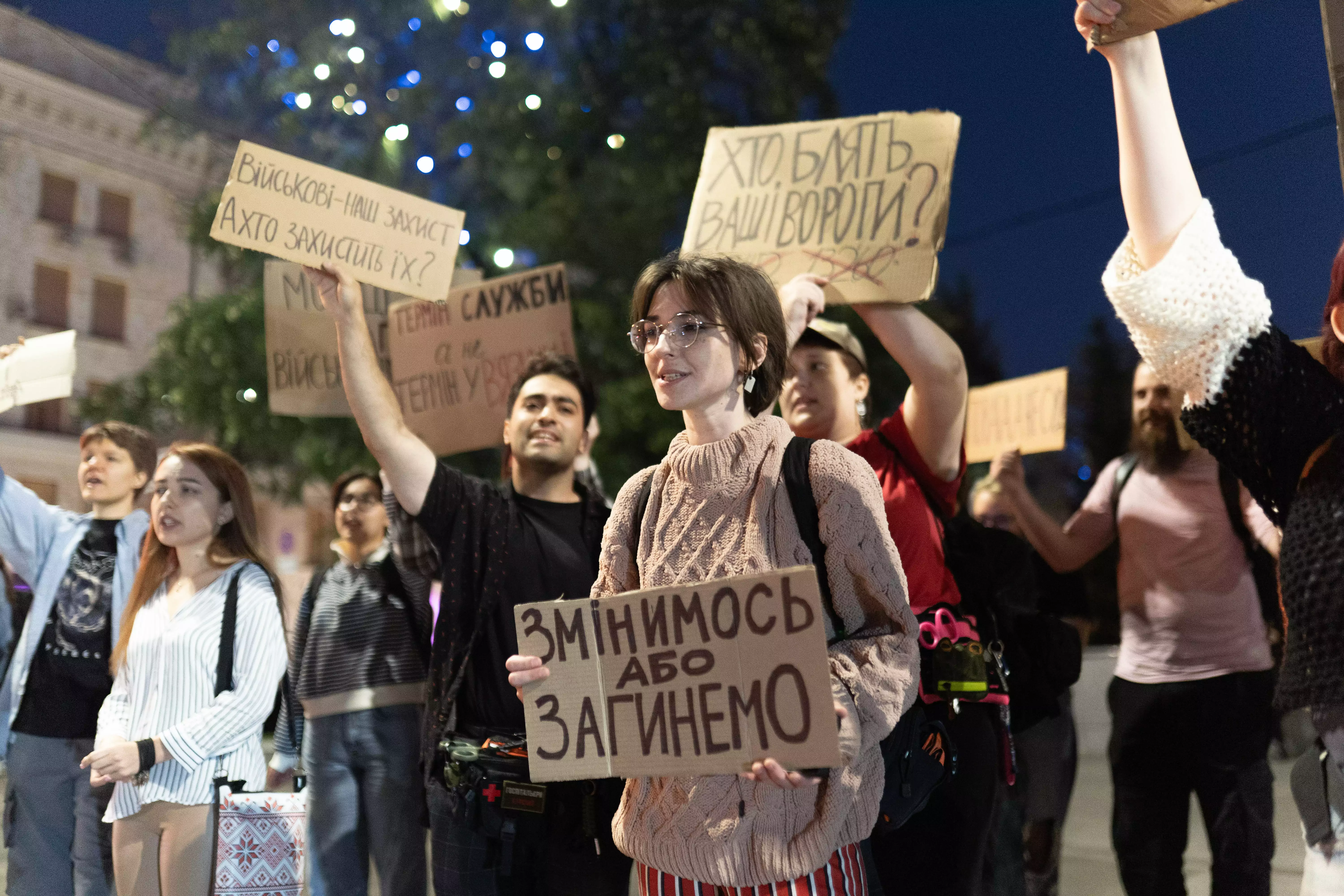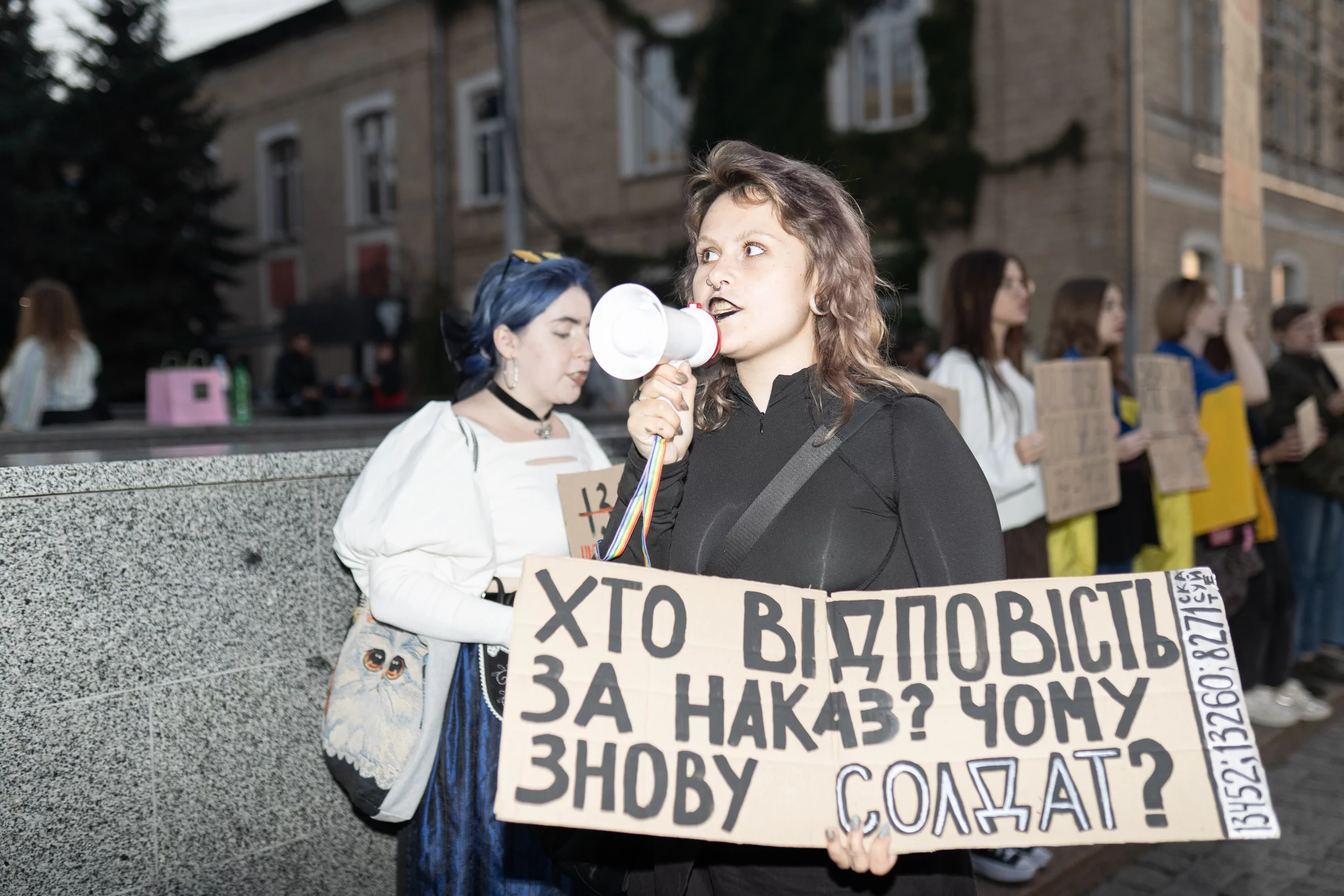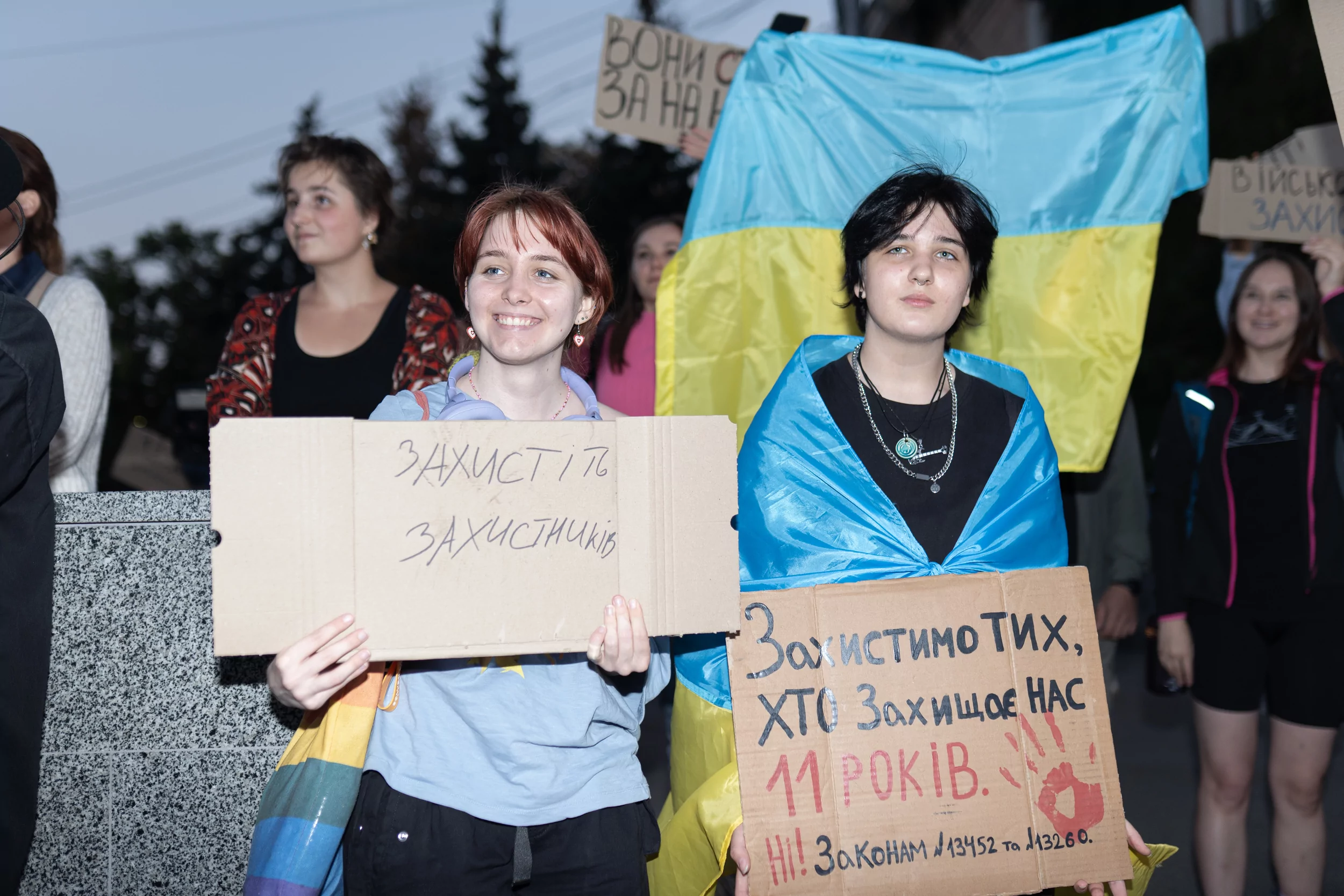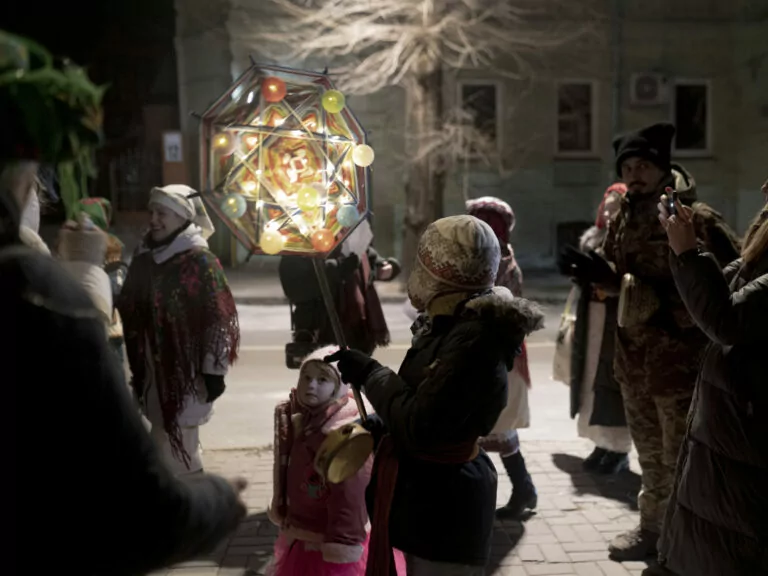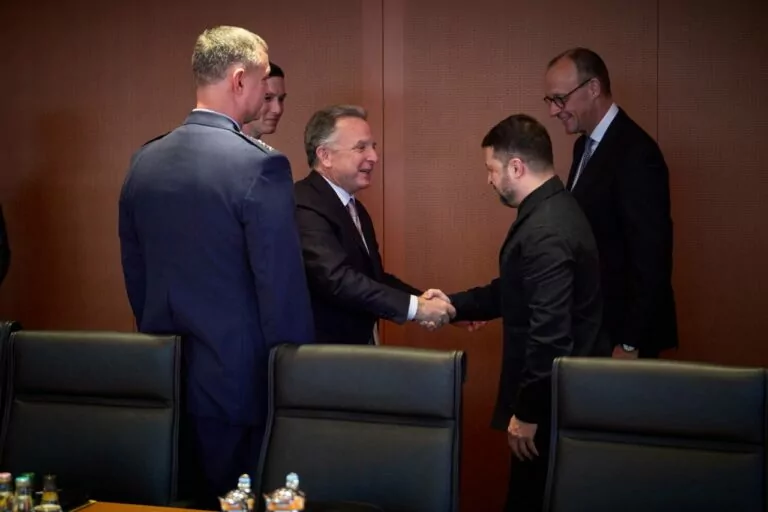UKRAINE, KHARKIV, Sep. 13 — In Kharkiv, on the evening of Sep. 7, the first protest began near the University subway station in the center of the city. Police estimated that about 70 people joined the demonstration.
Marko, one of the protest’s organisers, said that Ukraine needs the army’s reform — it has to protect the military, not oppress them.
As of now, Kharkiv has protested thrice to express dissent with the bills that increase service people’s penalties for disobeying commanders’ orders and assign full criminal responsibility for desertion. Gwara’s journalists have been to several of those protests to talk to participants.
Military, veterans, and activists began calling for protests across different cities on social media on Sep. 5. Alina Sarnatska, a veteran of the Russian-Ukrainian war, wrote, “I demand that authorities stop oppressing service people.”
The main demands of the protests were that parliament not adopt bill №13452, which forbids the court’s judgesto chose a lighter punishment for crimes like desertion and disobedience, and cancel provisions of law №8271, which President Volodymyr Zelenskyy signed into law in January 2023. The latter increases criminal liability for desertion, going AWOL, and disobeying commanders’ orders — those accused of those charges would face imprisonment for 7-10 years.
Soldiers who refused to follow orders under the bill №13452 would face a term of 5 to 10 years’ imprisonment without the possibility of the court imposing a more lenient punishment or probation.
Oleksandr Shyrshyn, former commander of the 47th unit, said that the bill №13452 is designed to be a tool of influence and coercion for the military command to Ukrainian media Grunt. “I’m very sure that there’ll be abuses (of authority).”
Marko noted that such initiatives of the government make soldiers even more vulnerable in situations where they are faced with “stupid decisions that simply lead everyone to their deaths.”
“We, civilians, must defend the rights of the military. Because we care about the people who are protecting us now. Because each of us is just temporarily a civilian and may, sooner or later, become a soldier and find ourselves in the same vulnerable situation,” said Marko.
Behind the protest organizers in Kharkiv, people shouted, “We will change or we will die.” On their posters, the signs: “Defend the defenders,” “Who will answer for the order?”, “Why soldiers again?”, “They stand for us, and we stand for them,” “Motivate, don’t intimidate,” and others.
Protesters also demanded parliament not to pass the bill №13260 that has already gone through the first hearing.
The bill proposes to increase criminal liability for soldiers who deserted. Those charged with desertion or going AWOL, if found guilty, would face imprisonment for 5-10 years without the possibility of getting a lighter sentence. Currently, a lighter sentence can be imposed if a soldier returns to their unit.
Oleh Symoroz, an activist and veteran, noted that going AWOL has become “the only mechanism for active military personnel to transfer from incompetent commanders (to another unit).”
He described desertion as a complex problem and called for solving it not through harsher punishments but through fundamental changes in the Ukrainian army.
People also advocated for the presidential bill on the military ombudsman, which has been stuck in parliament since June 2025, to be adopted instead of №13260. The ombudsman would have to monitor the state of human rights and freedoms in the army.
Nastia Bdzhola, co-organizer of the Kharkiv protest, also noted that being a civilian in Ukraine is a matter of time. “It’s important to defend the rights of military personnel for oneself in the future.”
On Sep. 6, in response to the protests, Ukraine’s Ministry of Defence released a statement about its support for the law on the military ombudsman, adding that the bill that increases punishment for disobedience (№13452) needs to be removed from parliament’s agenda and “improved” to prevent the oppression of military personnel.
A letter from the General Staff — a structure under the Ministry of Defence — written in July in support of this bill, is attached to the bill’s card on the parliament’s website.
Andrii Hnatov, head of the General Staff and a major general of the Armed Forces, expresses gratitude for the implementation of “developed propositions about optimization of the Armed Forces of Ukraine’s work under martial law” in this letter.
Many participants of the protests across Ukraine, including Kharkiv, said they had loved ones serving in the military. They went to the streets to protect their families.
One of them, Inna, told Gwara that all the men in her family defend the country. It’s important to her that society supports them and does not remain indifferent.
“I want to live in a country that cares about its citizens.”
Update from Sep. 13, 11:13: A clearer distinction is established between law №8271 and bill №13452.
Update from Sep. 13, 00:35: “Kharkiv protests” changed to “People in Kharkiv protest.”
Read more
- Opinion: How Ukrainian resistance maintains political freedom in Russian-occupied territories
Hello! This is Elza, a reporter from Gwara Media. Thank you for your interest in our stories about people in Kharkiv and causes they care about. Please, consider supporting our newsroom on BMC and/or Patreon.
